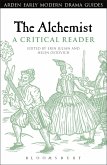The first female Chair of the Royal Society of Literature and translated into thirteen languages, Maggie Gee is writing the Victorian condition-of-England novel for 21st-century Britain.
In the first critical study of Gee's work, Mine Özyurt Kiliç identifies the specific social problems her novels address and explains the social consciousness similarities Gee shares with the Victorians. Analyzing how Gee adjusts the condition-of-England novel to reflect contemporary Britain enables Özyurt Kiliç to reveal the accuracy of Gee's rich portraits of Britain. She focuses on Gee's ability to cut across the boundaries of race, class and gender, mix voices from the margin with the majority and challenge and change the idea of the mainstream.
As an active, self-conscious and critical participant in the literary world, Gee paints a panoramic view of society. Her critiques of class, race and the world of publishing, allow Özyurt Kiliç to cover a wide range of topics and detail how English fiction shapes and influences, and is shaped and influenced by, the contemporary literary market.
In the first critical study of Gee's work, Mine Özyurt Kiliç identifies the specific social problems her novels address and explains the social consciousness similarities Gee shares with the Victorians. Analyzing how Gee adjusts the condition-of-England novel to reflect contemporary Britain enables Özyurt Kiliç to reveal the accuracy of Gee's rich portraits of Britain. She focuses on Gee's ability to cut across the boundaries of race, class and gender, mix voices from the margin with the majority and challenge and change the idea of the mainstream.
As an active, self-conscious and critical participant in the literary world, Gee paints a panoramic view of society. Her critiques of class, race and the world of publishing, allow Özyurt Kiliç to cover a wide range of topics and detail how English fiction shapes and influences, and is shaped and influenced by, the contemporary literary market.









